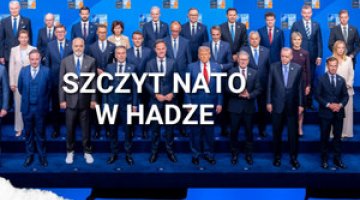The UK: work on a new strategy for foreign and security policy
At the beginning of July the UK media reported on planned cuts in the UK’s Army (which could apply to as many as 19,000 troops) and on preparations to scrap a part of transport aircraft, helicopters, minehunters and marines heavy equipment. The information is linked to the resumed work on the Integrated Review of Foreign Policy, Defence, Security and International Development which was launched in February this year and then suspended due to the COVID-19 pandemic. The review is set to provide a basis for the development of the UK’s military capabilities. It will be an extended version of the strategic documents which have existed to date, including those in the area of security and defence (Strategic Defence and Security Review, the last one was released in 2015). The review is being prepared by an interministerial team supervised by Alex Ellis – the Deputy National Security Adviser for the Integrated Review on diplomacy, development and defence. The time frame for the document is 2030 and the earliest it will be published is in the last quarter of the year.
Commentary
- The government of Boris Johnson has the ambition of establishing a comprehensive document which will redefine the UK’s position in the world following Brexit, in the face of growing competition between the US and China and fears of an erosion of its special relationship with the US. According to the information presented by the media, the document will focus more on hybrid threats from Beijing. The change in the current course, which has assumed an extension of the co-operation with China, is demonstrated by measures to reduce the UK’s dependence on Beijing in terms of the imports of goods of strategic importance or by the exclusion of Huawei from the development of the 5G network. The other challenges which are being discussed are: threats from Russia (particularly in the area of the North Atlantic), and Iran and terrorist organisations (including Islamic State). London is set to seek a greater synergy between its military and soft power and a more effective coordination of different departments in order to secure the UK’s global interests, in particular in its relations with countries outside Europe (the concept of ‘Global Britain’). To this end the Department for International Development and the Foreign and Commonwealth Office will be merged in September this year. The UK’s collaboration with large democratic states which are ready to defend the international liberal order will also be increased.
- The review will include a new vision for the development of the armed forces. It can be inferred from public debate that this vision will allow Britain to gradually move away from traditional military capabilities (developed for the engagement of large military formations in inter-state conflicts). Thus may mean that a part of the conventional capabilities, in particular in the Army, will be reduced. There are, for instance, discussions about a substantial cuts in the number of soldiers in the Army (by as much as 25%) and in the transport aircraft and helicopters of the Air Force, the minehunters of the Navy and heavy equipment of the Army and the Marines. Even though representatives of the Ministry of Defence and the UK’s armed forces deny this, the need of a greater focus on the development of selected domains has already been raised in the debate since the UK armed forces are not able to maintain high-end capabilities for a full spectrum of operations. London is also more interested in relying on the capabilities needed in hybrid conflicts, in which the boundaries between war and peace are blurred. These capabilities include: cyberwarfare (both offensive and defensive), space operations, electronic warfare, ISTAR, network-centric operations, artificial intelligence, the use of unmanned vehicles and the mobility and readiness of troops.
- The UK wishes to continue to increase its military presence in the Middle East and South-East Asia, mainly with the use of the Navy. It is assumed that one of the UK’s aircraft carriers and a unit of the Marines would permanently operate in these regions in the future. In 2018-2019 the UK opened new bases in Bahrain and Oman, and the opening of a permanent naval base in South-East Asia is currently being discussed. It can, though, be inferred from available sources that London is not planning to engage substantial forces in deterring China, but rather opts for tailored reinforcements for actions undertaken by its partners and allies (such as the US, Japan, Australia and India).
- The ongoing discussions in the UK about strengthening its military presence in South-East Asia and considerable reductions in conventional capabilities have been alarming to the states of NATO’s Eastern Flank since they would limit the engagement of the UK’s armed forces in larger-scale NATO ground operations. In the longer term, the UK might lose the capability of deploying division-size forces and find it difficult to fulfil its commitments within the framework of the NATO Defence Planning Process, even though it would rather maintain its current military presence on NATO’s Eastern Flank (including in Estonia and Poland).
- The government of Boris Johnson has given assurances that it will continue to commit to at least 2% of the UK’s GDP to the defence budget (in 2019 it was 2.14%) and that it would ensure an annual increase of at least 0.5% in real terms (i.e. above inflation) in defence spending. However, soon the UK government might be forced to seek savings in the area of defence. A decline in its GDP, the recession caused by the pandemic and the uncertainty linked to Brexit’s economic implications have placed increased pressure on the UK’s defence budget (approximately US$ 66 billion in 2019). In the coming years, it will be already burdened by the costs of two aircraft carriers entering service and the programme of replacing nuclear submarines. This might lead to a situation in which the review’s political ambitions will not be matched to available funding.
- Different positions have been clashing in the work on the new strategy. Mark Sedwill (the National Security Advisor), Dominic Cummings (the Prime Minister’s controversial advisor) and Dominic Raab (Foreign Minister) are among the officials with the greatest influence on the integrated review. In September, Sedwill, one of the UK’s most experienced officials, will be replaced by David Frost – a specialist in EU affairs but with no experience in security and defence. There is a dispute between proponents of the new approach to defence investments, focused on technology, non-military capabilities and hybrid conflicts (Sedwill and Cummings) and advocates of the traditional approach (in the Ministry of Defence and the armed forces). The outcome of this dispute will be vital for the final shape of the review. The latter group assumes that investments in conventional capabilities and the preparedness to engage in inter-state military conflicts should take precedence.





